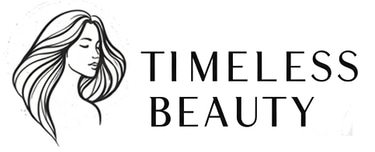Wellness Evolved: Top wellness trends 2025
Explore the cutting-edge wellness trends 2025 that are reshaping how we eat, move, and recharge. Discover the latest lifestyle trends and elevate your wellness journey.
WELLNESS
5/7/20252 min read


1. Red Light Therapy Goes Mainstream
Once a niche tool for biohackers and athletes, red light therapy (RLT)—also known as photobiomodulation (PBM)—is officially stepping into the wellness spotlight. With the global light therapy market projected to hit $1.56 billion by 2032, its rise shows no signs of slowing.
Backed by models and celebrities for its skin-enhancing benefits, RLT boosts circulation, supports collagen production, and may help reduce wrinkles, sun damage, and scars. While clinical research is still evolving, early studies suggest RLT could support wound healing, reduce hair loss, and even enhance cognitive function.
Expect 2025 to bring more accessibility, more innovation, and more believers in the glow-up power of red light.
2. The Rise of Personalized Health Tech
Whether we like it or not, AI isn’t going anywhere—and in 2025, it’s likely to become even more deeply embedded in our pursuit of better health and longevity. As people grow more comfortable with technology in their daily lives, AI’s role in personalized wellness is set to expand.
From wearables to next-gen health apps, AI is helping individuals fine-tune their routines, offering real-time insights into fitness, sleep, nutrition, and stress management by analyzing biometric data. The result? Smarter, more responsive wellness strategies that meet people where they are.
In the year ahead, expect these tools to get sharper, more targeted, more personalized, and more appealing to anyone looking to take control of their health in a practical, data-driven way.
3. Strength Training for a Longer, Stronger Life
In 2024, perimenopause and menopause took center stage, sparking broader conversations around aging, wellness, and longevity, especially among women 35 and up. At the heart of that shift? Strength training.
Once seen as niche, strength training is now gaining mainstream momentum, particularly with women and older adults looking to age well and stay strong. According to the Mayo Clinic, resistance-based exercise helps preserve lean muscle mass, which naturally declines with age. Beyond building strength, it’s also linked to improved metabolism, stronger bones, better cognitive function, reduced risk of chronic illness, and an overall higher quality of life.
As the focus on longevity deepens in 2025, expect strength training to keep its grip on the wellness spotlight
4. Personalized Health Testing Goes Mainstream
As personalization becomes the norm across industries, healthcare is catching up—fast. One of the biggest shifts? The rise of at-home diagnostic kits that offer deep, tailored insights into your health.
From hormone and metabolism panels to inflammation and toxin screening, customizable lab tests go far beyond the standard checkup. Brands like Lifeforce and InsideTracker are leading the way, providing personalized reports, expert guidance, and actionable recommendations—all delivered to your door.
Looking ahead to 2025, expect these advanced tests to sync more seamlessly with wearables and AI tools, offering real-time tracking and smarter optimization. It’s a major step toward proactive, data-driven wellness, putting individuals in control of their health like never before.
5. Gut Health Goes Deeper
As research continues to highlight the gut’s powerful influence on everything from immunity to mood, gut health is set to remain a central pillar of wellness in 2025.
No longer just about digestion, a healthy gut is now linked to chronic disease prevention, mental clarity, and overall vitality. This has fueled major growth in the digestive health supplement market, projected to hit $32.4 billion by 2033. But beyond pills and powders, the focus is shifting toward food.
More people are embracing a whole-food, minimally processed diet rich in fiber, fermented foods, and naturally occurring probiotics. The trend points toward a more holistic, food-first approach—one that treats the gut as the gateway to long-term health.
